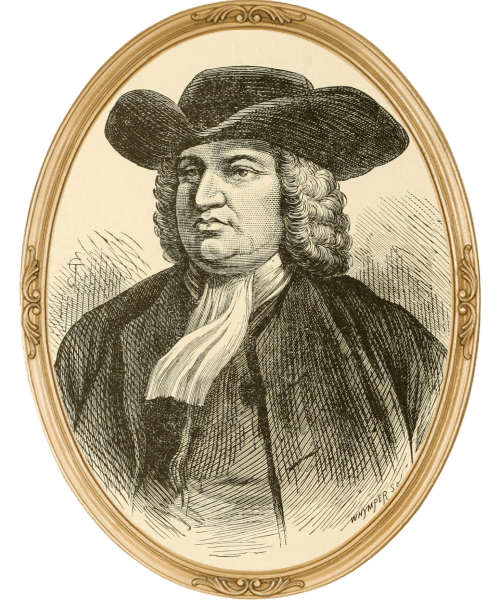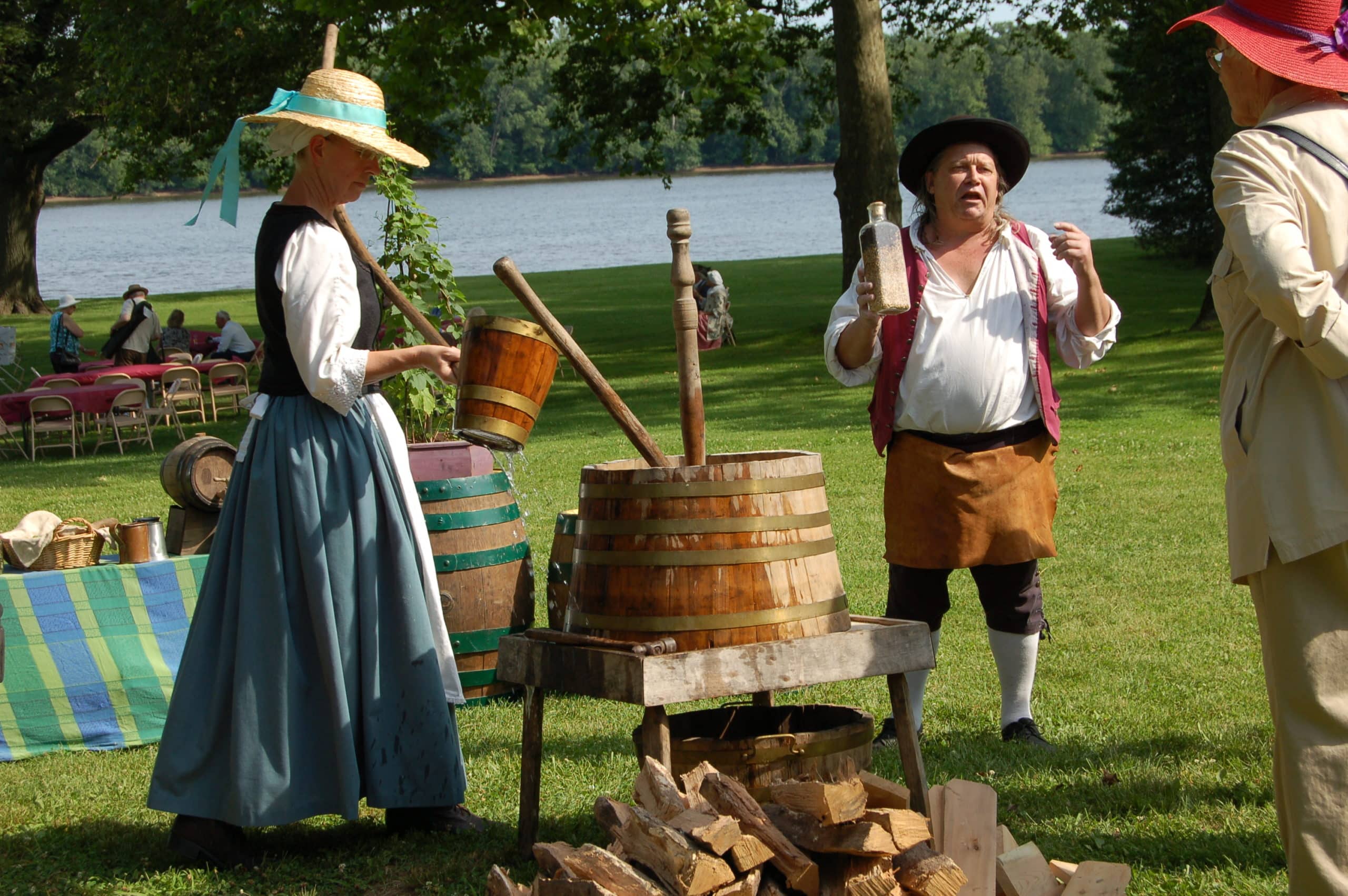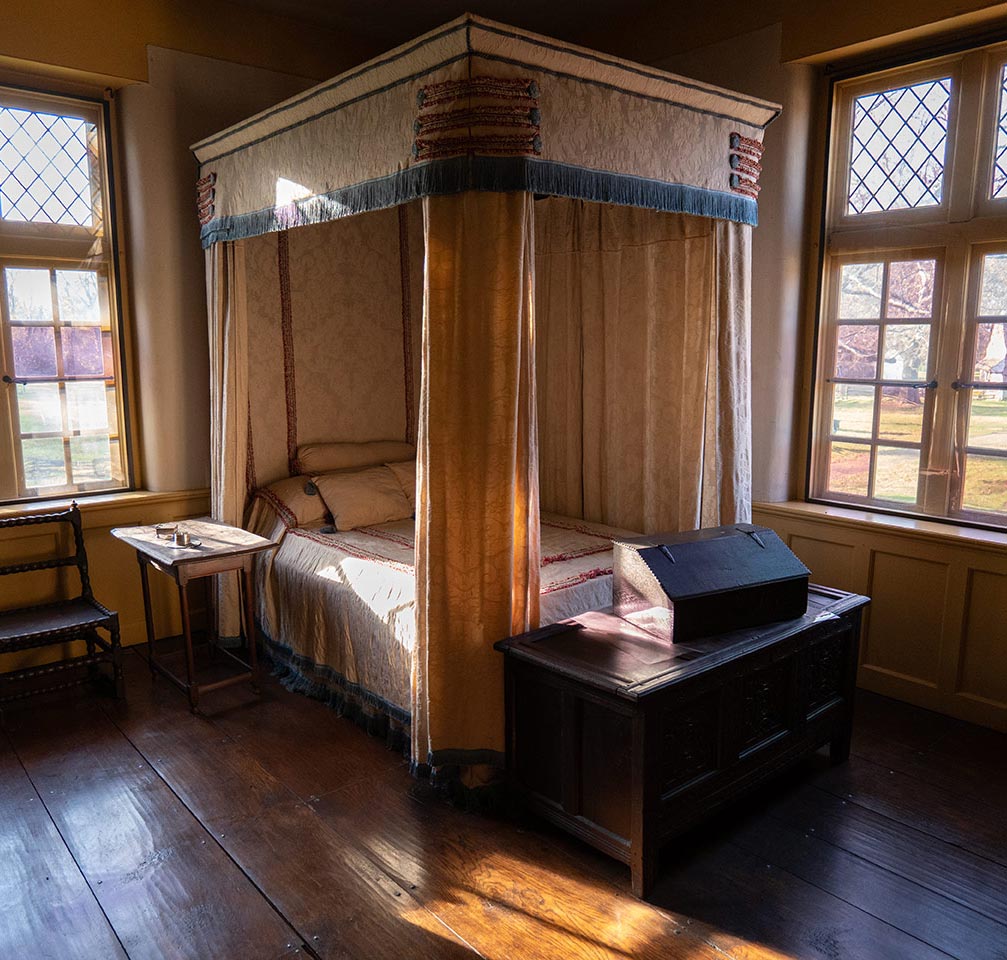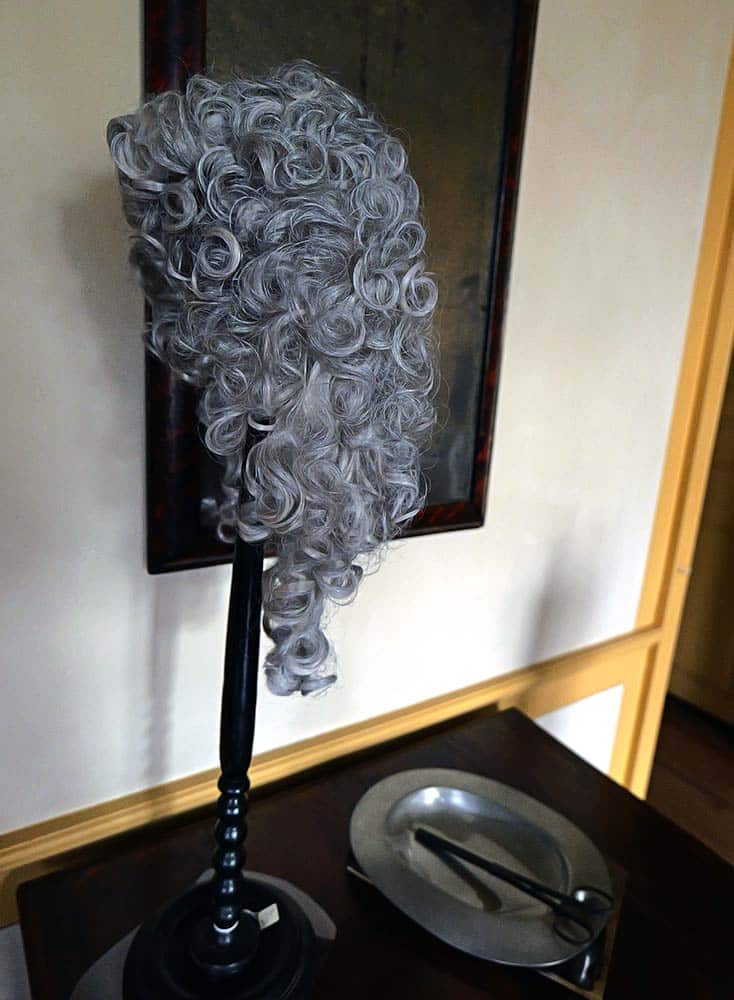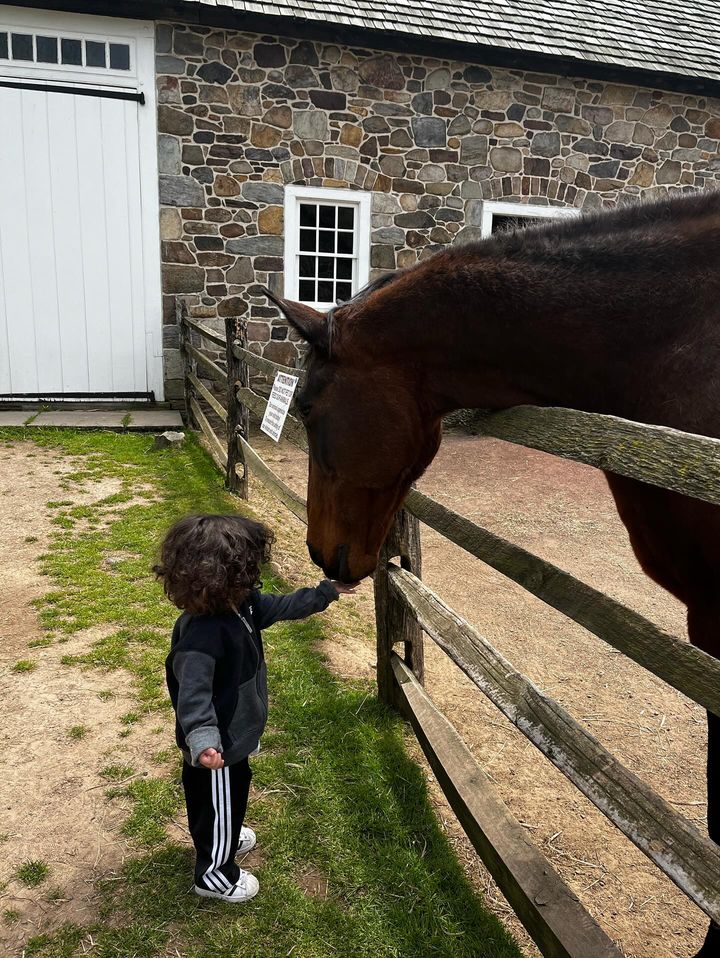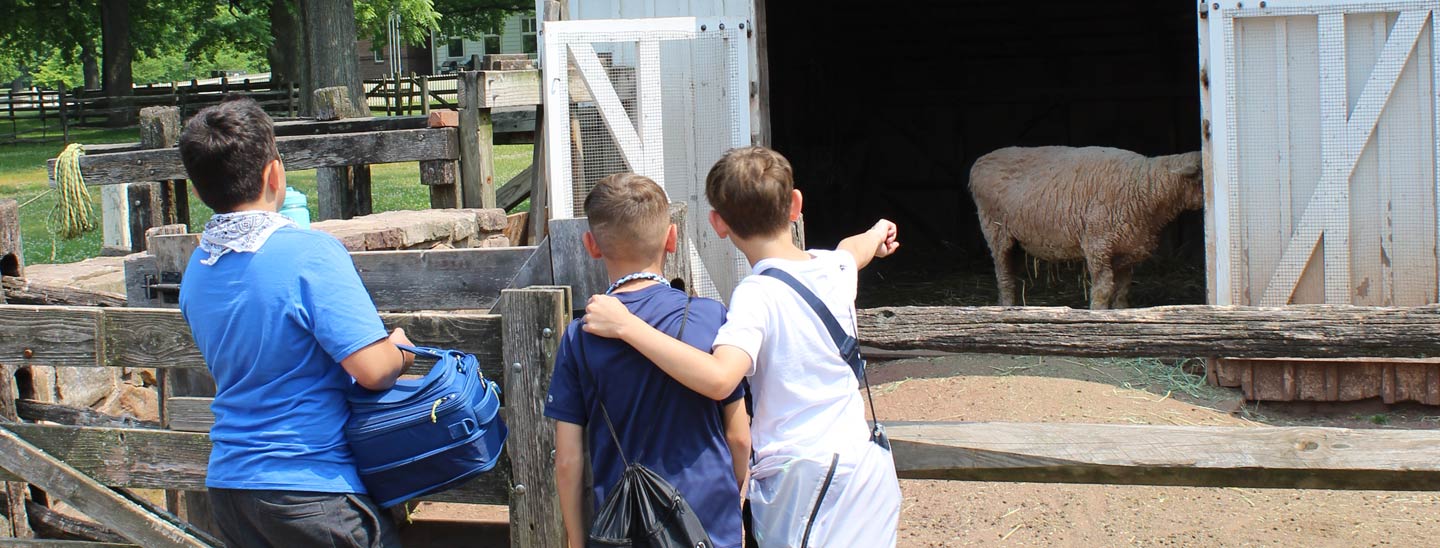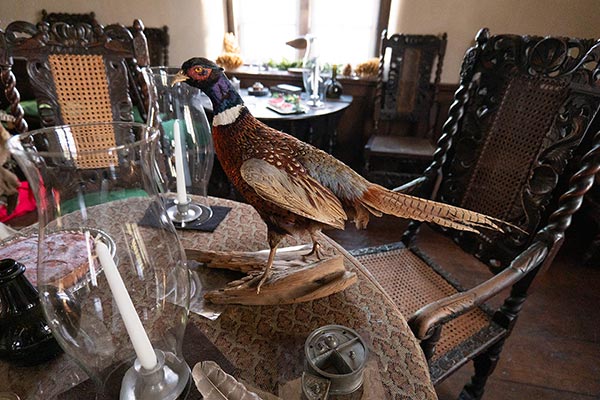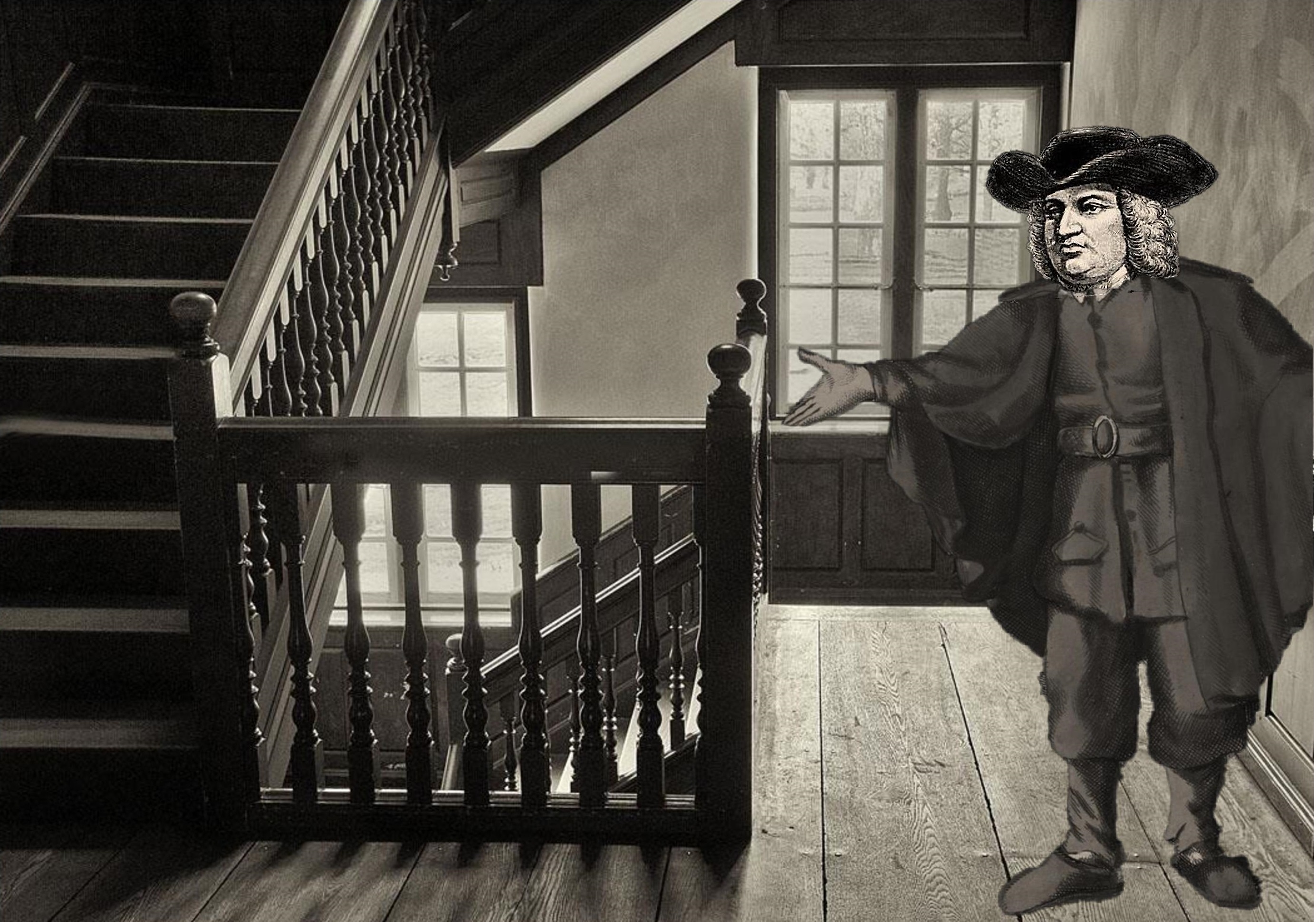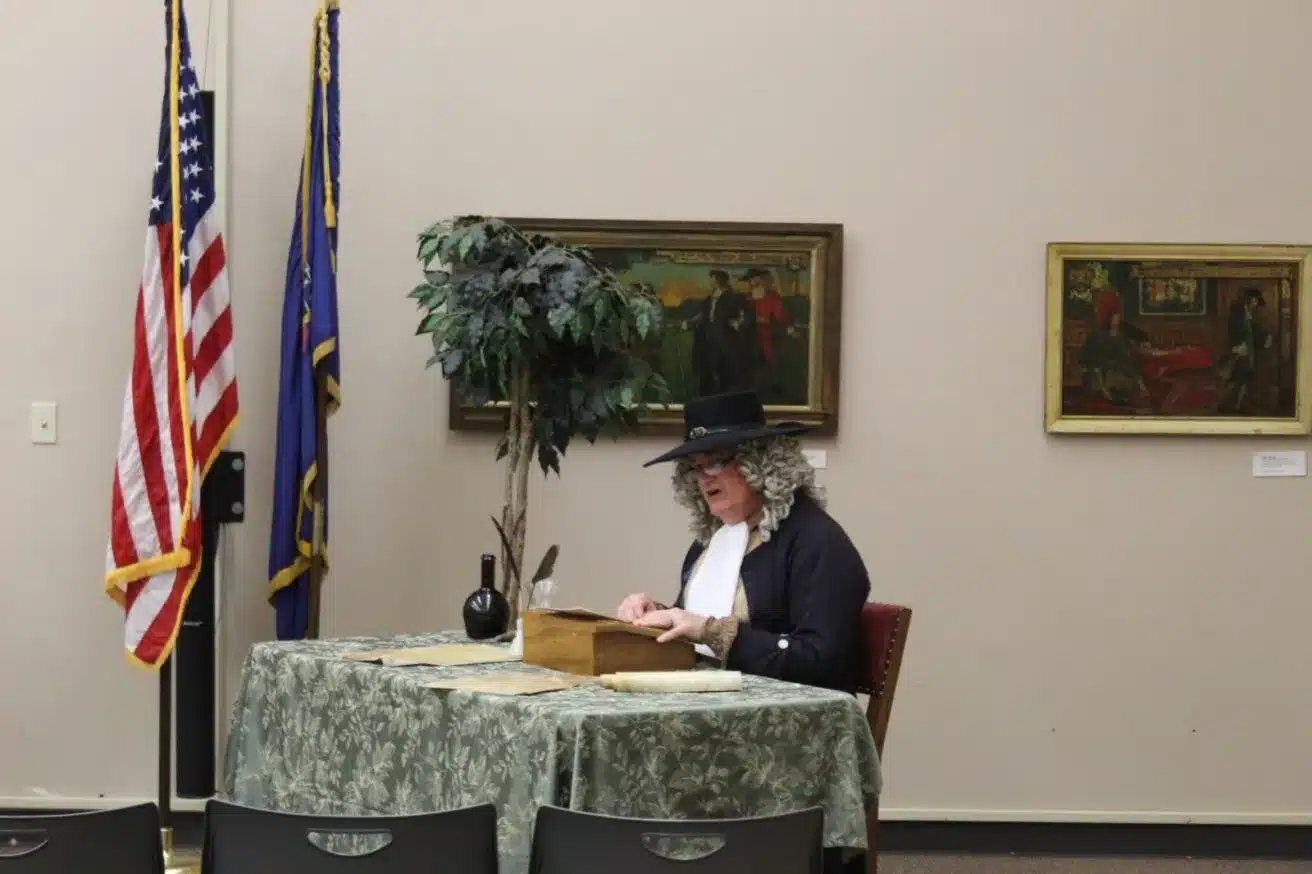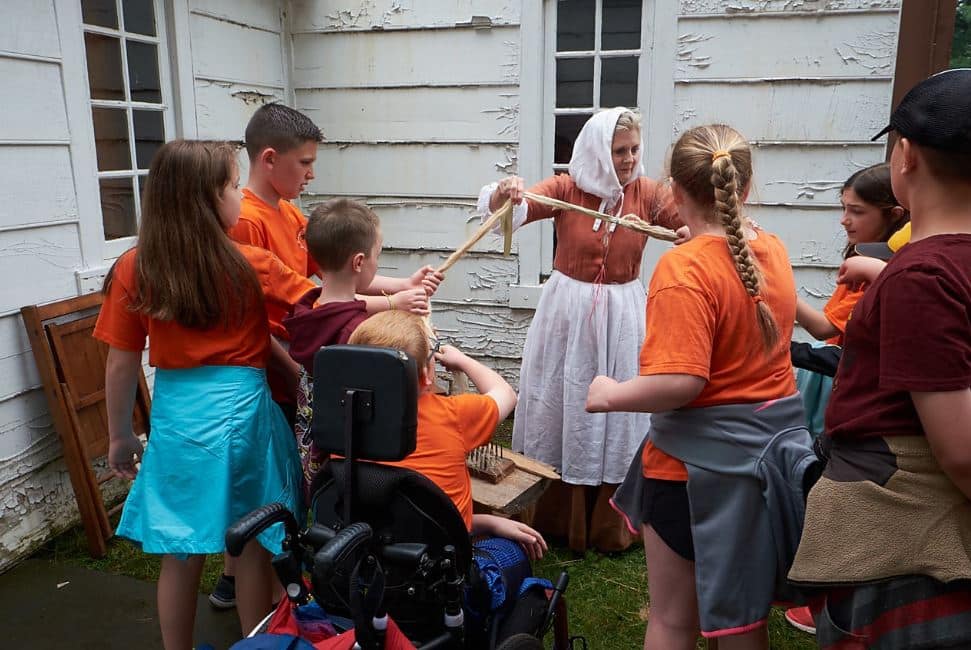
For reservations to experience “nkwiluntàmën: I long for it; I am lonesome for it (such as the sound of a drum)” by Indigenous artist Nathan Young, please go to https://nkwiluntamen.com/
Our History

Plan Your Visit
“A country life and estate I like best for my children,” William Penn
Situated along the Delaware River in beautiful Bucks County, Pennsylvania, this 43-acre country estate was the summer home of William Penn, founder and first governor of Pennsylvania.
Education
What was life like 300 years ago? The stories of people who lived and worked at Pennsbury Manor will come to life through living history demonstrations and activities, including gardening, blacksmithing, open-hearth cooking, and more!
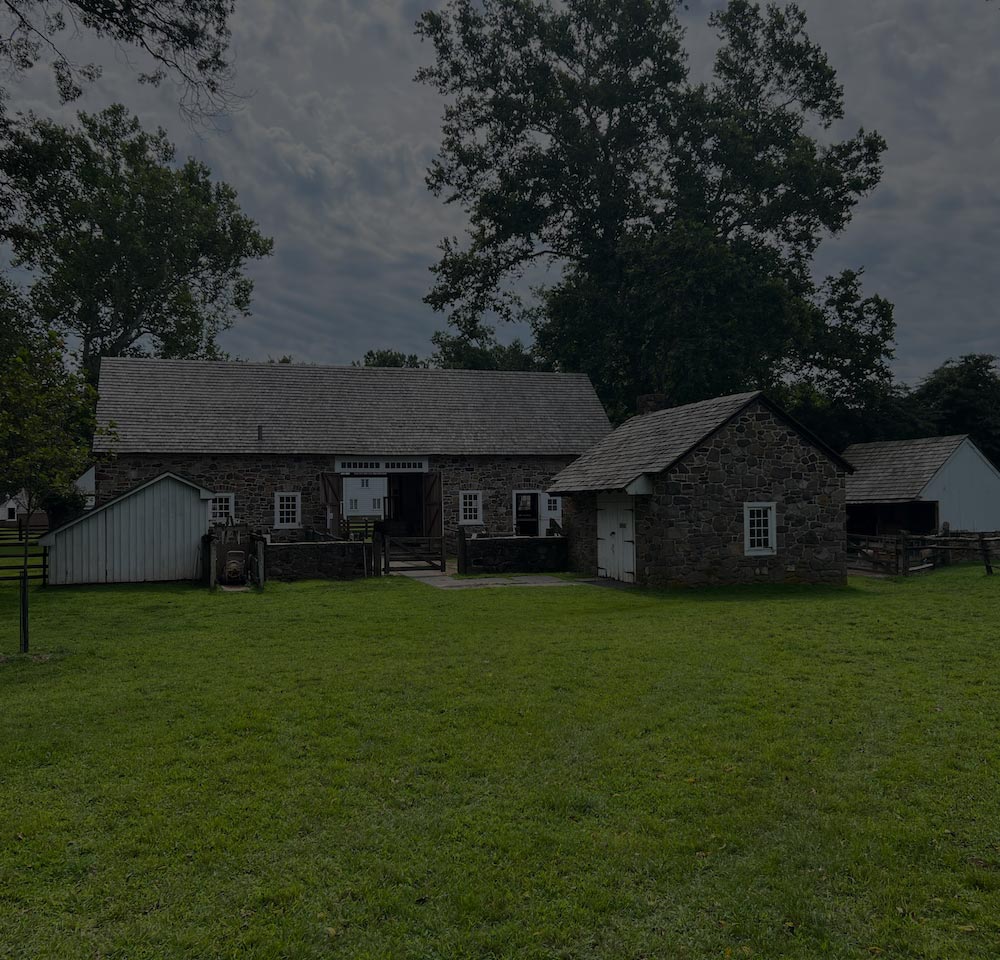
Help Support our Animal Friends
In William Penn's time, the animals at Pennsbury Manor would have been part of a working farm that sustained the people living there. Today, our sheep, geese, oxen, and horses serve to educate the public about the crucial role of their predecessors. Pennsbury Manor is one of a handful of museums that maintains a living collection of retired animals. With your generous donation, we will be able to continue to provide a great life for our animals.

